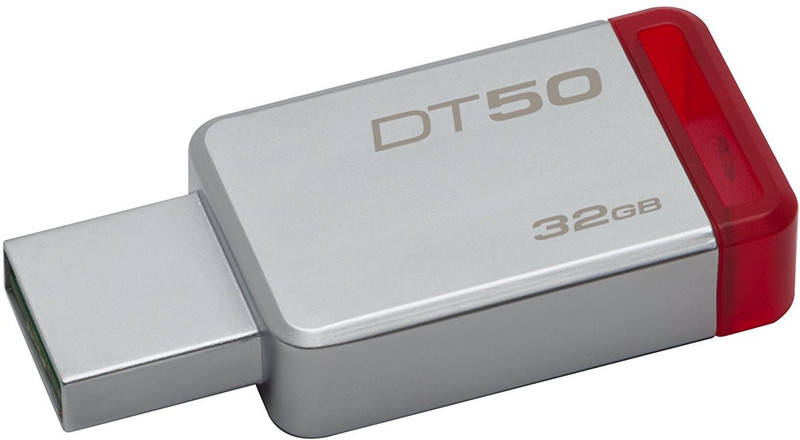A Beginners Guide To Choosing The Right Health Supplements

Walk into any pharmacy or scroll through an online health store, and you'll be greeted by an avalanche of supplement options. Each one claims to be the key to better health, sharper focus, or a longer life. But let's be real, not all supplements are created equal, and not everyone needs the same ones.
Choosing the right supplements isn't about jumping on the latest health trend; it's about understanding your body's needs and making choices that genuinely benefit you. Whether you're looking to boost your energy, improve your gut health, or fill nutritional gaps, this guide will help you separate the essentials from the gimmicks.
Also Read: Are Protein Supplements Safe? The Myths And Facts You Need To Know
1. Understanding Your Needs: What's Missing In Your Diet?
Before reaching for a bottle of pills, take a step back and assess your diet. A balanced, nutrient-rich diet should always be the foundation of good health. Supplements are just that, supplementary. They're meant to fill in the gaps, not replace real food.
For instance, if your diet lacks leafy greens and dairy, you might be short on calcium. If you follow a vegan lifestyle, vitamin B12 is likely something you'll need. Those who rarely get sunshine may be missing out on vitamin D. It's not about taking everything under the sun but rather identifying what's truly lacking.
A good approach is to track your meals for a week and analyse which food groups you tend to miss. If you're unsure, a simple blood test can reveal nutrient deficiencies. Once you know what your body needs, choosing the right supplements becomes a lot easier, and far less overwhelming.
2. Quality Over Quantity: The Pitfalls Of Over-Supplementation
More isn't always better, especially when it comes to supplements. It's easy to fall into the trap of thinking that popping multiple pills will supercharge your health. However, taking unnecessary supplements can do more harm than good.
For example, excessive vitamin A can be toxic, too much iron can cause digestive issues, and overloading on fat-soluble vitamins like D and E can lead to toxicity since they're stored in the body. The key is to choose high-quality supplements that target specific deficiencies rather than consuming a cocktail of unnecessary vitamins and minerals.
Look for brands that undergo third-party testing and avoid products with excessive fillers, artificial colours, and additives. It's also worth checking labels for bioavailability, some forms of nutrients are more easily absorbed than others. A little research goes a long way in ensuring you're investing in something that genuinely benefits your health.
3. Natural vs Synthetic Supplements: Does It Really Matter?
One of the biggest debates in the supplement world is whether natural supplements are superior to synthetic ones. While natural options derived from whole foods may seem more appealing, it's not always a black-and-white issue.
Some synthetic vitamins, such as ascorbic acid (vitamin C), are chemically identical to their natural counterparts and work just as effectively. Others, like vitamin E, are better absorbed in their natural form. The key is to check the source and quality rather than assuming that "natural" automatically means better.
Whole-food-based supplements often contain additional phytonutrients that enhance absorption, but they tend to be pricier. If budget is a concern, a high-quality synthetic supplement can still do the job. Instead of focusing solely on natural vs synthetic, prioritise purity, dosage accuracy, and scientific backing.
4. The Role Of Lifestyle: Matching Supplements To Your Daily Routine
Supplements should fit into your lifestyle, not disrupt it. If you're always on the go, a daily multivitamin might be a convenient way to ensure you're covering your bases. If you're an athlete, protein and electrolytes may be essential. Night owls who struggle with sleep might benefit from magnesium or melatonin.
Think about when and how you'll take your supplements. Some vitamins, like A, D, E, and K, are fat-soluble and should be taken with meals. Water-soluble vitamins like C and B-complex, on the other hand, can be taken on an empty stomach. Timing and consistency matter, there's little benefit in having a cabinet full of supplements if they never make it into your routine.
It's also important to remember that supplements aren't magic pills. They work best when combined with a balanced diet, exercise, and proper sleep. Simply put, no supplement will make up for an unhealthy lifestyle.
5. Reading Labels: Deciphering The Jargon And Marketing Hype
Supplement labels can be a minefield of complex terminology and bold claims. Terms like high potency, doctor-recommended, or immune-boosting might sound impressive, but they don't necessarily mean much.
Instead of falling for flashy marketing, focus on the actual ingredient list and dosage. Look for:
- Active ingredients: The primary nutrients in the supplement.
- Dosage per serving: Ensure it aligns with the recommended daily intake.
- Other ingredients: Watch out for unnecessary fillers, artificial sweeteners, or allergens.
If a product claims to be clinically proven, check if studies support the claim. A quick online search can reveal whether the evidence is solid or simply marketing hype.
6. Personalised Supplements: Are They Worth The Hype?
Personalised supplements are the latest trend, offering formulations tailored to individual needs based on lifestyle quizzes, DNA testing, or blood work. But are they truly necessary?
While personalisation sounds appealing, many of these services simply repurpose standard supplements into customised packs. However, if you have specific health concerns or unique deficiencies, a personalised approach, guided by a healthcare professional, can be beneficial.
For most people, a carefully chosen combination of high-quality, off-the-shelf supplements will work just as well. The key is to base decisions on genuine needs rather than clever marketing.
7. The Myth Of Instant Results: Managing Expectations
Supplements aren't a quick fix. Unlike painkillers or stimulants, they take time to show effects. Consistency is key, and some nutrients need weeks or even months to reach optimal levels in the body.
For example, omega-3s may take several weeks before showing improvements in brain function or joint health. Vitamin D deficiency won't be reversed overnight, and collagen won't magically erase wrinkles in a few days.
Unrealistic expectations often lead to frustration and supplement-hopping, switching products too soon before they've had a chance to work. Patience, combined with a well-rounded approach to health, is essential for seeing real benefits.
8. Consulting A Professional: When To Seek Guidance
While self-research is valuable, there's no substitute for professional advice, especially if you have underlying health conditions, take prescription medications, or are pregnant. Some supplements can interact with medications or cause side effects when taken inappropriately.
A doctor, nutritionist or dietitian can help identify deficiencies through blood tests and recommend appropriate dosages. This prevents unnecessary spending on supplements that may not be needed or, worse, could be harmful.
If something seems too good to be true, like a supplement promising instant weight loss or miraculous anti-ageing effects, it probably is. When in doubt, expert guidance ensures you're making safe and informed choices.
Products Related To This Article
1. Trivang Organic Moringa Leaf Powder
2. ZANDU Hair Growth Vitalizer: 100% Ayurvedic|Scientifically Proven
3. YOGAGURU MANTR Neem Karela Jamun Powder
4. THE SIMPLY WORLD Black Maca Root Powder
5. VEDICINE 100% Natural And Pure BEETROOT POWDER
6. OZiva Plant Based Hair Vitamins
7. Purna Gummies Sugar Free Biotin Cranberry Flavour Gummy For Hair
8. KAYABOOST Neem Karela Jamun Powder
9. Ayuvya Ayurvedic Gain+ Weight And Mass Gain Supplement
10. Neutraleaf Amla Powder 200g Gooseberry
The world of health supplements is vast, but choosing wisely doesn't have to be complicated. Start with your diet, assess your needs, and prioritise quality over quantity. Avoid falling for marketing gimmicks and always read labels carefully. While supplements can be a valuable addition to your wellness routine, they're just one piece of the puzzle. A balanced lifestyle, nutritious food, and professional guidance will always be the foundation of good health. So, before adding that trendy new supplement to your cart, take a moment to ask: Do I really need this? Your body, and your wallet, will thank you.
Disclaimer: The images used in this article are for illustration purposes only. They may not be an exact representation of the products, categories, and brands listed in this article.


























